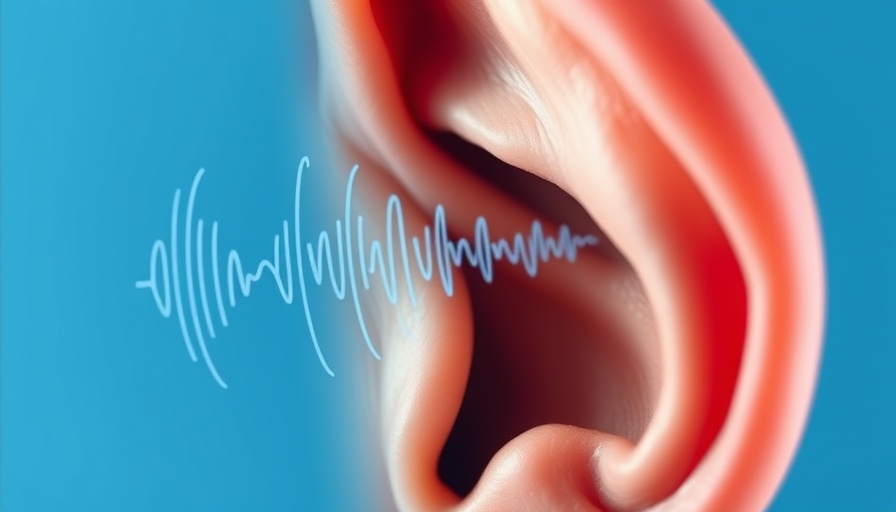
Understanding Tinnitus and Its Effects on Cognitive Function
Tinnitus might seem like a mere annoyance, often dismissed as a common effect of aging or noise exposure. However, this phantom sound may signify a deeper, more troubling issue—one that not only impacts your hearing but also your brain's ability to function optimally. With recent studies uncovering dire links between tinnitus and cognitive decline, it’s crucial for those experiencing symptoms to take notice.
Link Between Tinnitus and Cognitive Impairment
Recent research has highlighted concerning correlations between tinnitus and diminished cognitive abilities. A study published in Frontiers in Neurology discovered that individuals with recent-onset tinnitus scored significantly lower on cognitive tests that assessed memory, attention, and processing speed compared to those without the condition. The participants in this study, aged 60 and older, showcased cognitive decline particularly in areas controlling attention and memory functions.
Breaking Down the Brain's Response to Tinnitus
Tinnitus essentially hijacks the brain's attention system, draining valuable cognitive resources. Individuals suffering from this condition often struggle to concentrate, switch tasks, or recall information, affecting their daily lives significantly. This pervasive distraction leads to a cognitive burden that, over time, can wear down one’s mental capacity to cope with stress and fatigue.
Who is Most Affected by Tinnitus?
The research further indicates that women and individuals with lower education levels are at a heightened risk of cognitive impairment when afflicted by tinnitus. This insight suggests that specific populations may require more focused interventions to address both the auditory and cognitive dimensions of this condition. Recognizing these vulnerability patterns allows healthcare providers to focus their efforts more effectively and provide critical support to those at risk.
Brain Changes Linked to Hearing Loss and Tinnitus
Brain imaging studies reveal that chronic tinnitus is associated with structural changes in key areas of the brain, particularly those related to memory and decision-making. The hippocampus, a crucial region for learning and memory, shows signs of shrinkage and dysfunction when confronted with continuous tinnitus. This adds a new layer of complexity to the health risks posed by untreated tinnitus and highlights the need for more awareness surrounding its implications.
Practical Tips to Mitigate Tinnitus Impact
While the research paints a daunting picture, there are proactive steps one can take to lower the risks associated with tinnitus and its cognitive aftermath. Adjusting your lifestyle by avoiding loud noises, prioritizing restorative sleep, increasing magnesium intake, and paying close attention to gut health through a diet rich in fruits and fibers can help manage symptoms. Integrating daily relaxation practices can also significantly contribute to calming the nervous system, potentially mitigating the distress caused by tinnitus.
Conclusion: Why It's Time to Pay Attention
If you've grown accustomed to dismissing tinnitus as just another aspect of aging, recent findings call for a reevaluation. Understanding the interplay between tinnitus and cognitive health is pivotal for safeguarding your overall well-being. Heightened awareness about your symptoms and early intervention could steer you towards better cognitive health in the long run. Engage with your healthcare provider to explore personalized strategies aimed at managing tinnitus effectively—your brain's health is worth the attention.
Taking action today by discussing your symptoms with a medical professional can have profound effects on your cognitive future. Don't let this invisible foe take control of your mental clarity.
 Add Row
Add Row  Add
Add 




Write A Comment